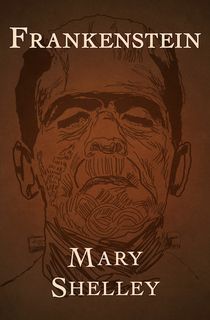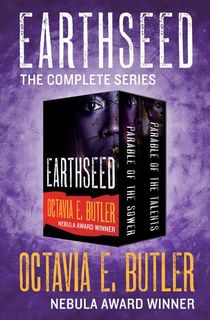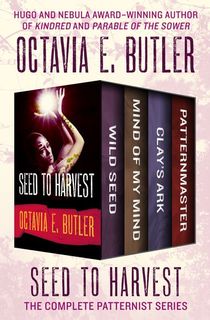It’s natural to want to soak up every detail about your favorite authors after finishing a compelling read. A simple Internet search will usually yield the basic details: where the author is from, what else they have written, and what they look like. But for the facts that we tell our friends at dinner parties or our co-workers in hushed whispers during lunch breaks—the facts that are surprising and just downright unbelievable—we need to dig a little deeper.
When it comes to our favorite sci-fi authors, there is no shortage of unexpected fun facts about them. From life-determining coin flips to plagiarized college essays, the following is a list of fun facts about your favorite science fiction authors.
Margaret Atwood

Atwood’s father was an entomologist (someone who studies insects) and his work took the Atwood family all around Canada. Because of this, Atwood did not attend school full-time until she was eight. She also used to take Greyhound buses to schools so she could promote her books in gymnasiums once she started writing full-time.
Though she’s one of the most celebrated sci-fi writers alive today, Atwood doesn’t actually like using the term sci-fi for her work. She prefers speculative fiction, because she thinks sci-fi should be about time travel and space.
RELATED: 8 Margaret Atwood Quotes for When the Bastards Grind You Down
Atwood is the author of The Handmaid’s Tale and Alias Grace, both of which have been adapted for TV. The Handmaid’s Tale centers on the New England area in the near future, where a patriarchal government has taken over. Few women are fertile, and those who are must bear the children of the patriarchy. Alias Grace is based on the true story of a Canadian murder in the 19th century.
John Scalzi

Scalzi claims that he became a science fiction writer instead of a mystery writer because he flipped a coin. He loved both genres, but could not decide between them and determined that if the coin landed on “heads,” then he would write sci-fi, and if it landed on “tails,” he would write mysteries. Clearly, it landed on heads.
In September of 2006, Scalzi taped raw bacon to his cat, “Ghlaghghee,” which led him to create a bacon section on his website. Those who visit Scalzi’s site are encouraged to leave bacon-related comments on the page—from recipes to bacon bandaids to bacon quizzes.
Scalzi is known for incorporating humor into his works, which include the Old Man’s War series. Netflix is reportedly turning Scalzi's series about the senior citizen soldiers of the Colonial Defense Forces into a movie.
Neal Stephenson

Neal Stephenson came from a family of engineers and scientists, which inspired him to write sci-fi. Stephenson attended Boston University and went in as a physics major, but eventually switched to geography with a minor in physics.
Stephenson wrote an essay on his website entitled “Why I am a Bad Correspondent,” which is about how he doesn’t like to answer emails. From the title of the essay, it may seem like Stephenson is reclusive or even unapproachable, but his reasoning makes a lot of sense.
He writes that when people connect to a book, they feel like they have a friendship with the author, or at least might be interested in communicating with them. Stephenson says that these expectations never meet reality, so readers would be disappointed. He also notes that answering emails interrupts his writing, which prevents him from quickly putting out new, compelling material.
Stephenson is the author of Zodiac, the story of an environmentalist who discovers a conspiracy to pollute the Boston Harbor. He also wrote Seveneves, which was nominated for a Hugo Award in 2015. It centers on an apocalypse which causes the Moon to shatter, among other catastrophic events, leaving the fate of humans hanging in the balance.
Orson Scott Card

Card spent time as a missionary for the Church of Jesus Christ of Latter-day Saints in Brazil. Brazil inspired many of his works, including the settings in the Shadow series. He was a theatre major at Brigham Young University, so he writes his novels for an invisible audience. He wrote on his official website, Hatrack, that, “I’m constantly shaping the story so the audience will know why they should care about what’s going on.”
Card is the author of Ender's Game, which is about the fight between an alien species and humans. Children are trained to fight and must complete difficult tasks to defeat the aliens. Ender is a teenager who proves himself to be a genius during these challenges, but the responsibilities he is given are overwhelming.
Ray Bradbury

It took Bradbury a little over a week to write one of his most famous works, Fahrenheit 451. He wrote the book on a rented typewriter at UCLA, even though he wasn't a student there nor would he ever graduate college. UCLA was one of the only places he knew of where he could cheaply rent a typewriter. He spent $9.80 to write Farenheit 451. If he hadn’t become a writer, Bradbury claimed on his website that he would have been a magician.
“I saw Blackstone the Magician on stage and thought, what a wonderful life it would be if I could grow up and become a magician,” he wrote.
RELATED: Brilliant Reads for Fans of Ray Bradbury Books
Bradbury is a descendant of Mary Bradbury, who was accused of being a witch during the Salem Witch Trials. Her accusers claimed that she could transform into animals. She was convicted and was sentenced to hang—but didn’t. She hid until the trials ended and she eventually died from natural causes in 1700 at the age of 85.
Bradbury is the author of The Martian Chronicles, a collection of short stories about the human colonization of Mars. He also wrote The Halloween Tree—about eight friends who go on a journey to uncover the origins of Halloween—and Fahrenheit 451, which is about a fireman who burns books.
Mary Shelley

There is mystery surrounding how exactly Shelley came up with the idea for her most famous work, Frankenstein. It was rumored that the poet Lord Byron challenged Shelley to come up with an idea for the scariest tale she could imagine while in Switzerland with her husband, Percy, and her sister. Shelley herself claimed that the idea came during a dream. She was 19 when she wrote the novel, and 21 when it was published.
RELATED: Fascinating Facts About Sci-Fi Pioneer Mary Shelley
Shelley’s life was filled with tragedy. Her mother died from complications following Shelley’s birth, her half-sister died by suicide, and her husband drowned when she was 25. The couple had four children together, but only one son lived to see adulthood.
Michael Crichton

Crichton felt like his literature professor at Harvard was lowballing Crichton’s grades, and devised a way prove that this was the case, by submitting George Orwell essays as his own. He would still get B- and below. Crichton had other issues with the English department at Harvard, so he changed his major and graduated with a degree in anthropology.
RELATED: Fun Facts About Jurassic Park Author Michael Crichton
Crichton also towered over most everyone else, as he was 6’9”. He was very insecure about his height, because he felt like it made him stand out from everyone else in a negative way. He met with psychics and gurus to try to help limit these insecurities. As insecure as he was for his height, the world viewed him as very attractive, and he was on People magazine’s most beautiful list in 1992.
Crichton wrote the Jurassic Park and Jurrasic World novels, and the screenplay for the Westworld movie, which he also directed. Jurassic Park is about an island with genetically engineered dinosaurs that dissolves into chaos when the power goes out and the dinosaurs are free to roam. The book was adapted into a wildly successful movie franchise. Westworld was also adapted into an ongoing HBO TV series.
Octavia E. Butler

Butler worked as a potato chip inspector and after her shifts she would write—often at 2:00 or 3:00 in the morning. She hated throwing things out, a trait she claimed to have inherited from her mother. Because of this, she took over 300 boxes of books with her when she moved to Seattle. She was a fan of all types of public transportation because she never learned how to drive, as a result of her dyslexia.
Butler is the author of the widely praised Patternist series, which uses the apocalypse as a lens to explore themes like identity and race. She disliked Survivor—one of the books in the series— so much that she declined to have it reprinted after its first edition.
RELATED: Re-Read: Octavia Butler's Parable Series
Butler's Earthseed Series (also known as the Parable of the Sower Series) explores the origins of a new religion based around the belief that God is Change. This two-book series proved to be eerily prescient: it depicts an America ravaged by natural disasters, in which a conservative politician promising to "make America great again" comes to power.
Kurt Vonnegut

Vonnegut dropped out of Cornell University to fight in World War II in 1943. The Germans captured him during the Battle of the Bulge. He was kept in Dresden, Germany, and hid in a meat locker slaughterhouse when the Allied forces bombed the city.
Vonnegut's anti-war science fiction novel Slaughterhouse-Five is inspired by the time Vonnegut spent in captivity. It is believed to be semi-autobiographical and is arguably Vonnegut’s most celebrated work.
[via Wikipedia, Biography.com]
Featured photo of Octavia E. Butler: Alchetron












